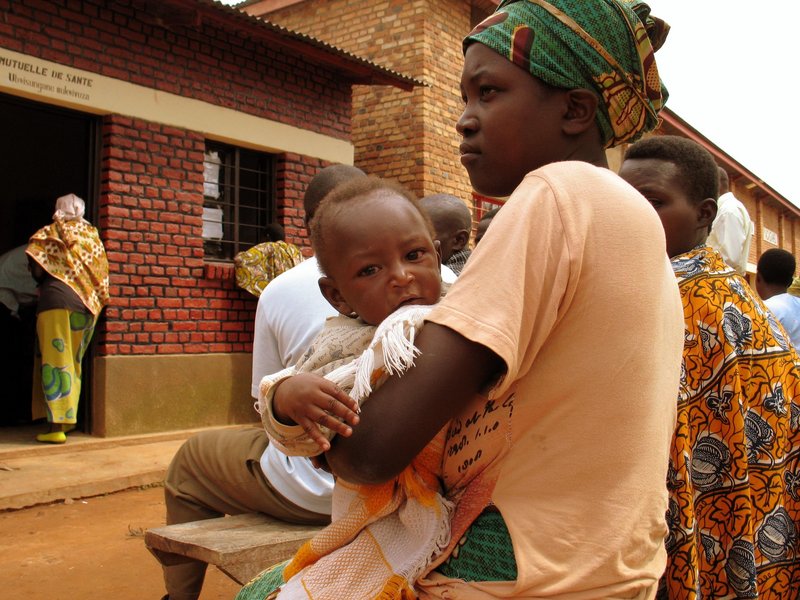VATICAN CITY – The Vatican on Friday welcomed AIDS experts from around the world for a two-day symposium on preventing HIV and caring for people with the virus, just months after the pope made international headlines with his groundbreaking comments about condoms and AIDS.
Organizers insist the meeting won’t call into question traditional church teaching that opposes artificial contraception. Yet Pope Benedict XVI’s comments last year about condom use with prostitutes with HIV seem to have removed a certain Vatican taboo that had all but ruled out public discussion of whether condoms were even effective in reducing HIV transmission.
Some of the speakers at the conference organized by the Pontifical Council for Health Care Workers strongly advocate condom use to prevent HIV’s spread.
They include Michel Sidibe, executive director of UNAIDS, the U.N. agency which maintains that condoms are an “integral and essential” part of prevention programs. Such programs should also educate participants about delaying the start of sexual activity, limiting sexual partners and marital fidelity, according to the U.N.
Sidibe speaks today, when the substance of the conference gets under way. The Vatican’s No. 2 attended the ceremonial opening session Friday, a seal of approval of sorts from the Holy See’s top office.
SHOWING RESPONSIBILITY
In a book interview in November, Benedict said condoms were never a moral solution to fighting AIDS. But he said someone, such as a male prostitute, who uses a condom to prevent HIV transmission might be showing a first sign of a more moral and responsible sexuality because he is looking out for the welfare of another person.
The comments were significant. While there had never been an official Vatican policy about condoms and HIV, some Vatican officials had previously insisted that condoms not only don’t help fight HIV transmission but also aggravate it because they gave users a false sense of security. Some claimed that HIV could easily pass through the condom’s latex barrier.
Benedict himself drew the wrath of UNAIDS and several European countries when, en route to Africa in 2009, he told reporters that the AIDS problem couldn’t be resolved by distributing condoms. “On the contrary, it increases the problem,” he said then.
The comments and the Catholic Church’s overall opposition to condoms as contraception have drawn fierce criticism, particularly in Africa, where an estimated 22.4 million people are infected with HIV, two-thirds of the global total.
Benedict’s revised comments in the book “Light of the World,” however, drew near-universal praise, even if interpretations of what he meant differed wildly.
Was he justifying condom use in certain circumstances in a major break with church doctrine? Progressive Catholics argued he was. Conservative Catholics insisted he wasn’t. The Vatican issued three different clarifications before finally concluding his comments were in full conformity with church doctrine.
DEBATE CHANGES SLIGHTLY
Yet with the small opening Benedict made — it was the first time a pope had implicitly acknowledged that condoms could actually help fight the spread of HIV — the Vatican debate seems to have changed ever so slightly.
The liberal group Catholics for Choice is urging participants at the symposium to take advantage of the window created by Benedict’s remarks last year to promote condom use in comprehensive HIV prevention programs and “resist” attempts by conservative Catholics who have sought to narrow what the pope meant. The group plans to take out an ad in today’s Corriere della Sera thanking Benedict “for acknowledging that condoms save lives.”
Yet Dr. Edward Green, the former director of the AIDS prevention research project at Harvard University, says empirical evidence is increasingly showing that condoms aren’t the solution, at least in Africa, where heterosexual sex among multiple partners in regular, concurrent relationships is largely to blame for HIV’s spread.
It’s a different scenario than in Thailand, for example, where high-risk sex workers have driven the spread of the virus.
“I’m not anti-condom,” Green said in an interview ahead of his speech here today. “They should be accessible, affordable, free. Just don’t bet the house and farm on it.”
What works in Africa, Green says, is male circumcision and reducing the number of sexual partners — in other words, changing the sexual behavior that fuels HIV’s spread, a message the Vatican and other faith-based groups have long preached.
“I’ve taken a lot of flak from my family planning colleagues, many of whom saw me as a traitor and thought I’d undergone a religious conversion,” said Green, who professes to belong to no particular church. He insists his conclusions are based on “empiricism about what works and what I know about Africa.”
Monsignor Kevin Dowling, bishop of Rustenburg, South Africa, knows Africa, too, but he’s not speaking at the conference.
Since 1997, he has run a community-based HIV program that provides home-care nurses, anti-retroviral clinics, a hospice and program for orphans to cope with the hundreds of thousands of HIV-positive people of the region. He counsels condom use.
‘SURVIVAL SEX’
The snapshot he paints is chilling: The area is home to large platinum mines that attract men from around the region to work for months at a time away from their families, and women who come seeking work.
Desperately poor, the women are forced to engage in what Dowling calls “survival sex” — to pay for food and shelter since there are no other jobs.
“What am I to say to her? That the only 100 percent sure way of ensuring that you will not become infected is to abstain from sex before marriage, and remain faithful to a single partner in a stable marriage for the rest of your life?” Dowling said in an email. “Such ‘choices’ are totally, but totally irrelevant to such people.”
He says that years of sitting with women in their shacks as they die — or their children do — had led him to take the nuanced position that “in certain circumstances, the use of a condom is allowable not as a contraceptive but to prevent disease,” he said.
“We do not give out condoms, but people are fully informed about prevention methods and helped to make informed decisions about how they can protect themselves and, if they themselves are HIV positive, how they can avoid infecting someone else.”
Dowling says he has endured “much trouble” for his views, but says he believes they are fully in line with church teaching since the condom isn’t being used as a contraceptive but to prevent disease.
Send questions/comments to the editors.



